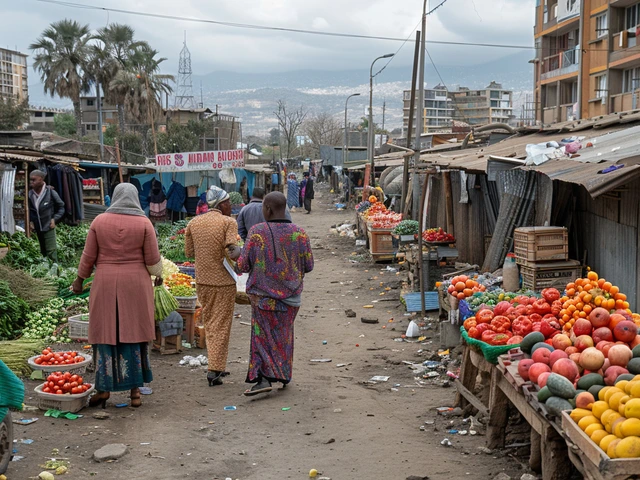Move to Ethiopia: What You Need to Know About Living and Working
Thinking about making Ethiopia your next home? You're not alone. More folks are asking what it's really like to live and work in Ethiopia. From finding a decent place to live in Addis Ababa to figuring out the job market, there's a lot to unpack before you book a one-way ticket. So, how does it all stack up in real life?
First off, let’s talk money. The salary range in Ethiopia varies a lot depending on your career, experience, and the city you choose. Teachers, pharmacists, and IT professionals tend to earn more than the average job, especially in the capital. Still, the cost of living in Ethiopia is often lower than what you’d expect in Europe or North America. Yet, rent in top urban areas like Addis Ababa is climbing, so budgeting is a must. You can usually find a simple apartment at a fair price, but modern flats in prime neighborhoods are pricey.
If you’re from the US or Europe, you’ll probably have questions about work permits and whether foreigners can land jobs. Good news: plenty of international companies and NGOs operate in Ethiopia, so there’s a demand for skilled expats, especially in tech, agriculture, and education. However, local regulation means paperwork and patience—make sure you sort out visas, work permits, and perhaps even review what salaries foreigners can expect.
The job market itself is changing fast. New industries like ICT and manufacturing are picking up speed. Want to start your own business? Many expats and locals are investing in small businesses—think cafes, tech startups, and even mini-farms. If you’re not into business, freelancing or teaching online are popular income sources. Digital jobs are on the rise, but international payment platforms like PayPal might not work, so expect to adapt your payment options.
But Ethiopia isn’t just about work. Settling in means getting familiar with the culture and languages. Amharic is official, but languages like Oromo and Tigrinya are big too. Learning the basics goes a long way with neighbors and at work, and can even open up hidden career opportunities. People here are proud of their traditions, yet open to newcomers. Just be prepared—some customs and traditional practices are different from what you’re used to. Be open-minded and respectful, and you’ll settle in quicker than you think.
Safety and lifestyle? Addis Ababa is safer than some big cities, though petty theft happens in touristy spots. Most expats and locals find daily life relaxed and welcoming. Social life thrives around family, cafes, and lively music scenes. Internet and mobile banking are growing but not as speedy as in Europe, so manage your expectations on tech.
Moving to Ethiopia isn’t for everyone, but it’s packed with opportunities and surprises. People who put in the effort and stay flexible will find a rewarding experience—sometimes even making more money or launching careers they couldn’t back home. If you’re curious, willing to adapt, and ready for a new adventure, you just might thrive in Ethiopia.





